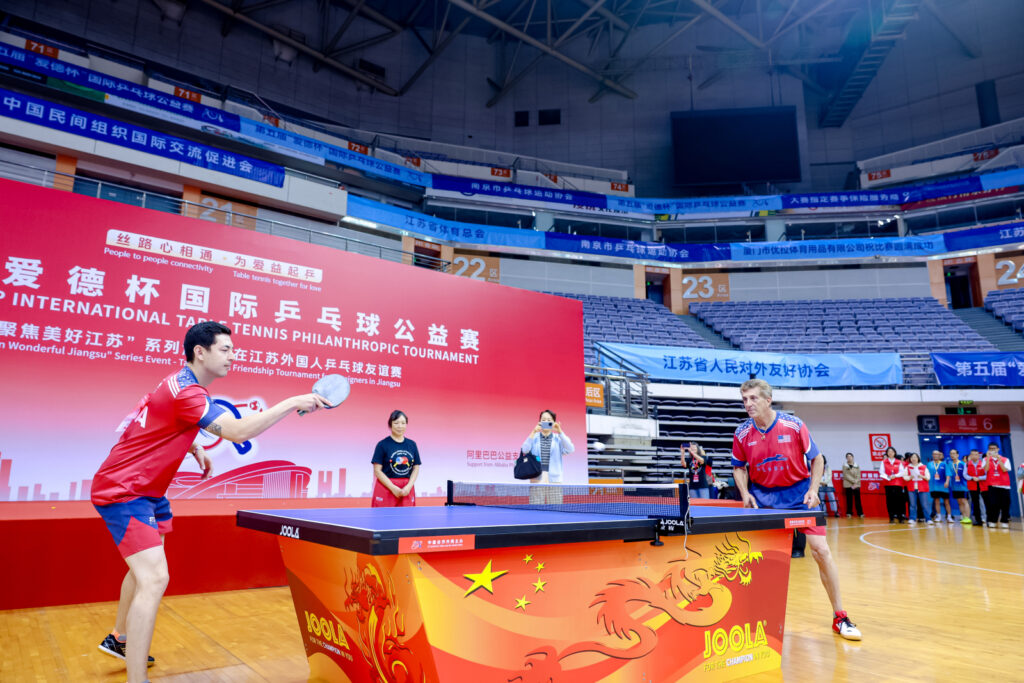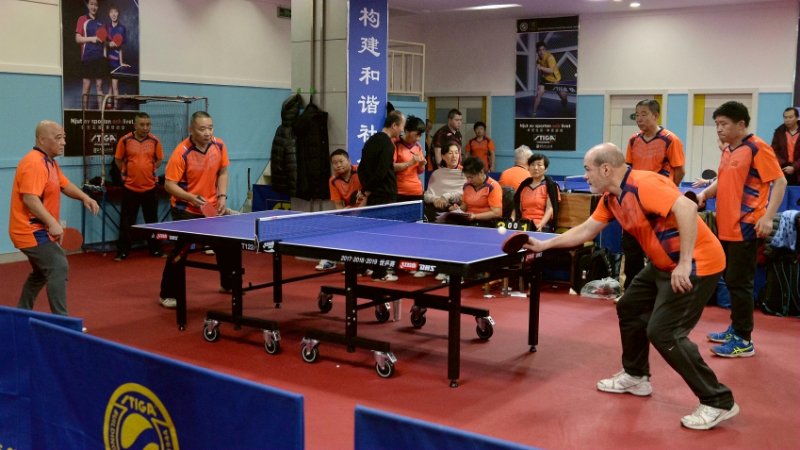
Word4Asia is in the business of helping US based organizations achieve their growth objectives in mainland China. Our blogs frequently discuss changes in China’s competitive landscape and what the implications for our US based clients might be. We thought it could be just as revealing to study what Chinese entrepreneurs and Chinese Americans are achieving here at home. We hope you’ll enjoy this somewhat different approach!
Who is the Chinese Entrepreneur?
One way to understand the type of Chinese people who become entrepreneurs is to compare them with their American counterparts. In America, age is not a predictor of whom may become an entrepreneur, age is spread evenly across an under 30 to over 60 age span.
Chinese entrepreneurs tend to have more technical degrees than American entrepreneurs do. Chinese entrepreneurs skew more toward the natural sciences whereas we Americans tend to come out of business schools. Interestingly, there is an equal proportion of engineers in both groups.
Understanding the Differences
In preparing this blog, Word4Asia had access to a research paper that studied how economics, culture and policy influenced the formation of established successful entrepreneurs, prepared by researchers from two universities: the School of Management at the University of Science and Technology of China, and Siena Heights University, Adrian, Michigan. This combined research team surveyed 279 Chinese and American entrepreneurs. Data collection took place at two different times and in two different geographic locations.
Summary of Research Findings

Americans tend to choose an entrepreneurial route because they believe their compensation will, in the long run, be better compared to working for someone else. Before China’s economic reform, there were limits on what workers were capable of earning, so fewer Chinese would have given better earnings as a driver for becoming entrepreneurs. Both Americans and Chinese place a premium on the value of hard work. However, the survey results indicated that Americans are likely to work more hours than their Chinese counterparts; it’s likely that they feel more strongly than the Chinese that the number of hours worked will directly impact their success. Chinese entrepreneurs tend to be more disciplined in their approach; more of them write and follow detailed business plans. In both cultures, business networking is seen to be an important requirement for success. However, American entrepreneurs demonstrate more trust of the people in their social networks compared to Chinese entrepreneurs. Americans, coming from an individualistic culture, are more likely to seek public speaking opportunities to promote their businesses. There also seems to be a difference in long-term outlook; American entrepreneurs are more positive about the long-term outlook for achieving success whereas fewer Chinese entrepreneurs responded in that way to the survey question. American has always been an important source for important new technologies. It’s not surprising that more Americans than Chinese entrepreneurs listed ‘unique technology’ as a driver for the start of their businesses.
In other blogs, we have discussed how the Chinese government aggressively supports their nation’s start-up companies with economic incentives. American entrepreneurs don’t feel as positive about the amount of assistance they receive from Federally sponsored programs.
Chinese entrepreneurs are more likely to feel that state and local government sponsored programs make starting a business easier; however, the study also revealed a perception that China’s large government might make everything difficult for the entrepreneur during the start-up phase of a venture. Conversely, in the USA, policy might encourage entrepreneurial start-ups but an overregulated environment might create more limits to the entrepreneur’s potential.
Let’s Meet A Few

Jack Ma
Reportedly, Jack Ma is the richest man in China, with a net worth more than $54.1 billion. Net Worth: $54.1 billion. Ma founded Alibaba Group in 1999, following in the general footsteps of Jeff Bezos and his company Amazon.com. Alibaba, however, has differentiated itself from Amazon by pursuing more of an industrial business model, becoming the place for Chinese factories to offer their products in bulk worldwide.
Ma’s Top 5 Rules for Success:
- Get Used to Rejection
Ma’s dedication to resiliency is a major contributor to his success.
He failed his college entrance examination twice before getting accepted on the third try. After graduating, he was rejected by the first 30 potential employers he applied to, even the police wouldn’t hire him. Neither would KFC who hired the first 23 applicants in front of him. Even Harvard University rejected him – a total of ten times!
- Keep Your Dream Alive
This is the company motto that Ma insists all his employees commit to.
- Focus on Culture
Ma grew his company from 18 people to more than 20,000 young employees by steadfast focus on the company’s mission, values, and culture of helping the company.
- Ignore the Nay Sayers.
Alipay is an important part of Alibaba, with over 500 million users. However, in the early stages, Ma received a lot of negative criticism about this part of the business – which he simply ignored.
- Seek to Inspire
Jack Ma drew a lot from his personal experiences watching great performances like the films, The Bodyguard, The Godfather, and Forrest Gump. He was inspired by the natural, from the heart performances delivered by great actors and he, himself, has sought to inspire others in the same way.
Wang Jianlin is a giant in the real estate world, and the owner of Dalian Wanda Group. This company includes luxury hotel properties, commercial real estate, and e-commerce ventures. At one time, he also owned a big share in the European soccer club Atletico Madrid. His net worth is estimated at $14 billion.
Five Management Tips from Wang Jianlin
- Army Discipline
As a teenager in the early 1970’s, Wang spent several years serving in China’s military. The experience taught him toughness, sacrifice, and a desire to fight to victory. He points to a direct relationship between a military background and success, pointing out that many top Chinese entrepreneurs previously served in the military.
- Innovate and Differentiate
Wang takes important lessons from the successes won by such American companies as Starbucks, McDonald’s, and. YUM! brands. Each of these companies have succeeded because of their ability to create outstanding consumer value in unique ways. He believes that this is something any great company must do, regardless of industry.
- Stay close to the Chinese leadership
Wang has forged a very close relationship with the Chinese Communist Party. The initiatives that they pursue are the areas where he focuses his business. For example, overseas investments; after the State Council in 2014 released specifications urging private Chinese companies to go global, he pointed his businesses in the same direction.
- To Be Number One, Instill a Distinctive Corporate Culture.
To create this corporate culture, Wanda has created an internal website and monthly company magazine that is “the core media for spreading Wanda’s corporate culture.” Each month, this internal media publishes touching success stories about Wanda employees that embody aspects of corporate culture. Also, Wang selects one book each year for all employees to read.
Outstanding employees get a bonus paid vacation and an invite to a splashy annual conference to rub elbows with Wanda company executives.
- Don’t read books on corporate philosophy
Each company must define its own essence and create a unique culture that is right for its goals, industry, leadership. Simply borrowing a culture from another company will not achieve the desired end.
Word4Asia has been dedicated to helping our clients achieve their goals in China for over twenty years. We hope this quick look at successful Chinese corporate leaders helps you as you consider your own tactical options to growth mainland China. If you are currently in a similar planning mode, we invite you to reach out to us. We’d love to visit with you about your goals and possibly provide some assistance. The easiest way is to email Dr. Gene Wood at gene@word4asia.com
Sources:
https://www.researchgate.net/publication/349310127_Chinese_Immigrant_Entrepreneurs
https://www.investopedia.com/articles/personal-finance/020415/top-10-chinese-entrepreneurs.asp
https://money.cnn.com/2016/02/22/news/wang-jianlin-book-advice/
https://project-management.com/jack-ma-top-10-rules-for-success/





